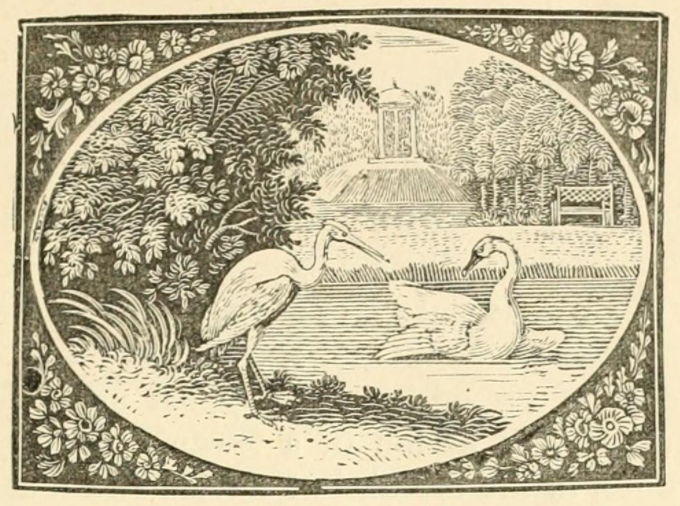91. Of the Pigeon and the Magpie
A pigeon being asked by the pie what could induce her that she built always in the same place, when her young always were taken from thence, answered: simplicity.
Moral. This fable shows that good men often are deceived easily.
92. Of the Ass and the Calf
An ass and a calf, when they were fed in the same pasture, perceived an enemy's army to approach by the sound of a bell. Then the calf said, "O companion, let us flee hence, lest the enemies lead away us captives." To whom the ass answered, "Fly thou, whom the enemies have been used to slay and to eat; it is no concern of the ass, to whom everywhere the same condition of bearing a burden is offered."
Moral. This fable warns servants that they fear not greatly to change their lords, provided that the future be not worse than the former.
93. Of the Fox and the Women Eating the Hens
A fox passing near a certain vaillage saw a crowd of women eating in deep silence very many hens daintily roasted. To whom being turned, he said, "What clamors and barkings of dogs would be against me, if I did what you do?" To whom a certain old woman, answering, said, "We eat what are ours, but thou stealest other men's things."
Moral. What is mine does not belong to thee. Do not steal; be content with thine own things.
94. Of the Fat Capons
A certain man had brought up very many capons in the same coop, who all were made fat except one, which his brethren laughed at as lean. The master about to receive noble guests in a neat and sumptuous banquet, commands the cook that he should kill and cook out of these which he should find the fatter. The fat, hearing this, afflicted themselves, saying, "O if we had been lean!"
Moral. This fable was invented for the comfort of the poor whose life is safer than the life of the rich.
95. Of the Swan Singing in Death, Reprehended by the Stork
A swan, dying, was asked by the stork why in death, which other animals so much fear, he sent forth sounds much sweeter than in all his life, when rather he ought to be sad. To whom the swan said, "Because I shall not be tormented longer with the care of seeking meat."
Moral. This fable admonishes that we do not fear death, by which all the miseries of the present life are cut off.

No comments:
Post a Comment
Comments are limited to Google accounts. You can also email me at laurakgibbs@gmail.com or find me at Twitter, @OnlineCrsLady.